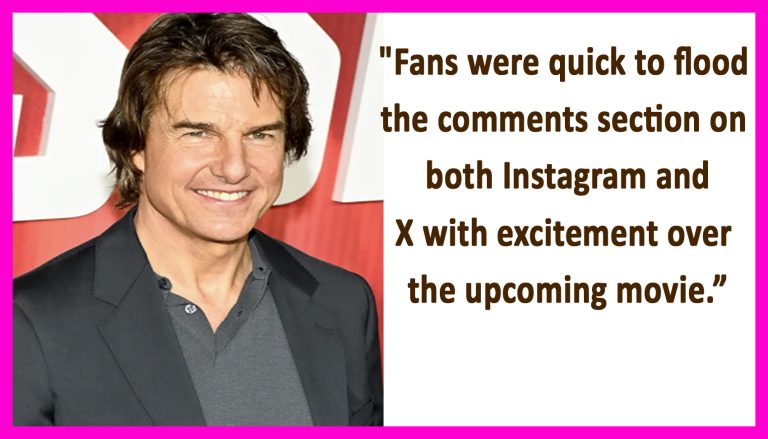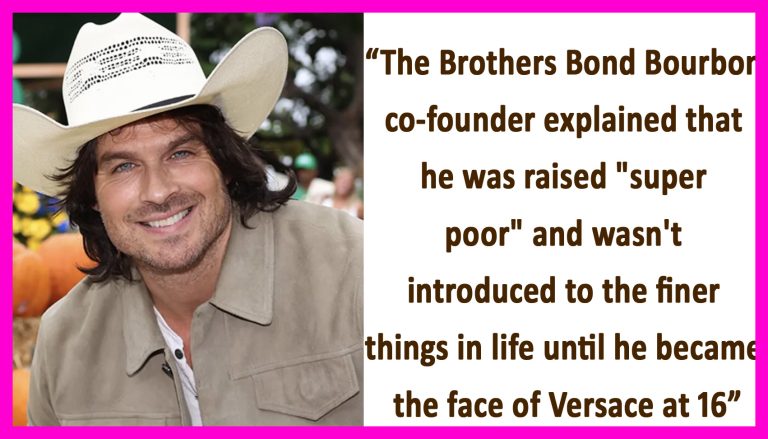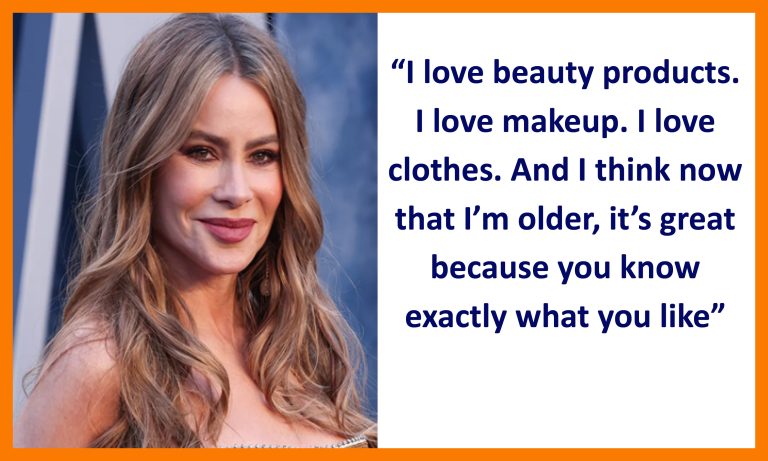‘Cobra Kai’ Actress Quits Hollywood After 20 Years of Surviving ‘Off the Crumbs’
After more than two decades of weathering the ups and downs of the entertainment industry, actress Vanessa Rubio—best known for her role as Carmen Diaz in the hit Netflix series Cobra Kai—has officially decided to leave Hollywood. In a candid and heartfelt statement, she opened up about her struggles, sacrifices, and the stark reality of what it means to be a working actress in an industry often driven by image, power, and profit.
Her words—“I’ve been surviving off the crumbs for 20 years”—have ignited a larger conversation around sustainability in the acting world, especially for women and people of color. This isn’t just the story of an actress walking away—it’s a reckoning with the dream factory itself.
A Familiar Face, an Underappreciated Journey
To millions of fans, Vanessa Rubio is recognized for her grounded, soulful portrayal of Carmen Diaz, the hardworking mother of Miguel in Cobra Kai, the wildly popular spin-off of the classic Karate Kid franchise. Her role brought depth and emotional balance to a show often dominated by karate battles and nostalgia-fueled rivalries.
But what fans didn’t see was the toll a 20-year grind took on Rubio behind the scenes. Despite appearing in multiple shows and films—including roles in How to Be Single, Blood Bound, and several indie projects—financial stability and creative fulfillment always seemed just out of reach.
“I’ve given my all—heart, soul, talent—to this industry,” Rubio said in a recent podcast appearance. “But there comes a point where you realize that love alone doesn’t pay the bills.”
A Dream Deferred, Not Denied
Rubio’s journey began with promise. Born in New Jersey to Colombian parents, she grew up with a love for storytelling and performance. After studying at NYU and training in the theater, she dove into acting with hopes of making a difference—not just for herself, but for Latinx representation in Hollywood.
“I didn’t want to play just the maid, the girlfriend, or the sexy Latina stereotype,” she once told Variety. “I wanted to portray real, complex women who looked like me.”
For years, she juggled auditions, side gigs, and short-term roles, slowly building a résumé but rarely landing the kind of job that could provide long-term security. When Cobra Kai came along, it felt like a breakthrough. But even with the show’s success, Rubio still found herself scraping by—both financially and emotionally.
“There were days I’d be on a red carpet and the next morning be calculating how to stretch $40 for groceries,” she revealed. “It was glamorous on the outside, survival mode on the inside.”
The Harsh Truth of Hollywood’s Hierarchies
Rubio’s story shines a harsh light on the inequities of the entertainment world. While A-list stars command millions and enjoy global fame, the vast majority of working actors live paycheck to paycheck, often without benefits, job security, or union protections.
“There’s this idea that if you’re on TV, you must be rich,” Rubio said. “But people don’t realize that supporting actors often don’t get residuals, don’t have bargaining power, and don’t have a voice.”
Her decision to leave was not made lightly. In fact, Rubio admitted she tried to “tough it out” for years, hoping the next audition, the next callback, or the next season would finally shift the balance. But when that shift never came, the emotional and financial strain became too much.
“I’ve missed family events, weddings, and funerals. I’ve worked through sickness, heartbreak, and exhaustion because I believed that’s what it took to make it. And now I see—it took too much.”
A Crisis of Value and Visibility
Rubio’s departure also echoes a larger issue plaguing Hollywood: the continued undervaluing of Latinx talent. Despite making up a significant portion of the U.S. population and box office revenue, Latinx actors are still underrepresented and often confined to stereotypical roles.
A USC Annenberg study found that in the top-grossing films of 2022, only 5.2% of speaking characters were Latinx—despite Latinx people accounting for nearly 20% of the U.S. population. And behind the scenes, the numbers are even more dismal.
“I wasn’t just fighting for roles—I was fighting for relevance,” Rubio said. “Even after Cobra Kai, it felt like I had to reprove myself with every project, every audition.”
Her words reflect a deep fatigue—one that many actors of color understand all too well. The relentless hustle, the constant code-switching, and the invisible labor required to be “palatable” to industry gatekeepers can erode even the most passionate spirits.
Life After Hollywood: Rediscovery and Renewal
Now stepping away from acting, Rubio is embracing what she calls a “season of restoration.” She plans to focus on writing, healing, and reconnecting with parts of herself that were long buried under the weight of Hollywood expectations.
“I’m not quitting creativity,” she clarified. “I’m just reclaiming my energy. I want to tell stories that nourish me, not drain me.”
Rubio is also launching a wellness initiative focused on mental health for creatives, particularly those from marginalized communities. She hopes her journey can inspire others to prioritize well-being over validation.
“I spent so long chasing the dream that I forgot to dream for myself,” she said. “Now, I’m waking up.”
The Industry’s Wake-Up Call
Rubio’s exit comes at a time when Hollywood is undergoing seismic shifts. The dual writers’ and actors’ strikes of 2023 laid bare the industry’s inequalities and the urgent need for structural reform. AI threats, streaming residuals, and fair compensation for below-the-line workers are hot-button issues—and Rubio’s story adds another layer to the conversation.
“Actors like Vanessa Rubio are the backbone of Hollywood,” tweeted actor and activist Wilson Cruz. “When they’re pushed out, it’s not just a personal loss—it’s a loss for storytelling, representation, and truth.”
Indeed, Rubio’s departure forces Hollywood to confront a sobering question: How many more talented artists will be driven away before meaningful change is made?
Fans React with Heartfelt Support
Since her announcement, fans have flooded Rubio’s social media with messages of love and admiration. Hashtags like #ThankYouVanessa and #CarmenForever have trended among Cobra Kai circles.
“Vanessa gave us a Latina mom who was strong, smart, and loving. That mattered,” one fan posted. “Her work touched lives—even if Hollywood didn’t always see her worth, we did.”
Many are also calling for Netflix and the producers of Cobra Kai to honor her contributions in the show’s upcoming sixth season. Whether that means a proper sendoff for Carmen or incorporating a tribute, fans want Rubio’s impact recognized.
The Power of Walking Away
While some may view leaving Hollywood as a defeat, Rubio reframes it as an act of empowerment.
“For years, I thought quitting meant failing,” she reflected. “Now I see—it’s the bravest thing I’ve ever done.”
Her story adds to a growing list of actors, writers, and creatives who are publicly redefining success. From Mo’Nique and Lisa Bonet to recent departures by high-profile showrunners citing burnout, the myth of the glamorous, all-sacrificing artist is slowly unraveling.
Rubio’s choice is not just personal—it’s political. It’s about reclaiming agency in an industry that often treats its labor force as disposable. It’s about rewriting the narrative of worth beyond awards and airtime.
A Legacy That Lasts
Even as she closes the chapter on acting, Rubio’s legacy endures. Her performance in Cobra Kai remains a touchstone for representation. Her courage in speaking out provides a roadmap for others navigating similar paths. And her continued advocacy ensures that her voice will echo beyond Hollywood’s soundstages.
“I may be leaving the screen,” she said, “but I’m not leaving the fight.”
And with that, Vanessa Rubio steps into a new role—not just as an actress, but as a truth-teller, a healer, and a trailblazer unafraid to walk away from the table when all she’s being offered are crumbs.











